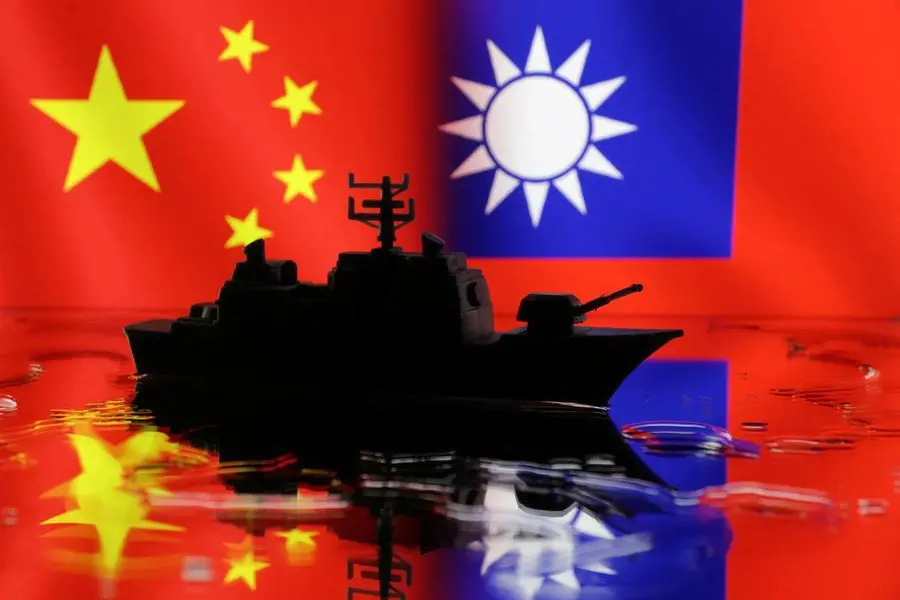PHOTO
Taiwan is not seeking war with Beijing, and its policy is to build up a defensive, multi-level deterrence capability to make it harder for China to capture the island, Taiwan Defence Minister Wellington Koo said on Monday.
Democratically governed Taiwan, which China views as its own territory, has faced a stepped-up military and political pressure campaign from Beijing to accept sovereignty claims that the government in Taipei rejects.
Taiwan President Lai Ching-te on Sunday said that China views the annexation and "elimination" of Taiwan as its great national cause, telling Taiwanese military cadets not to give in to the defeatism of "the first battle is the last battle", a theory that Taiwan could collapse as soon as China launched an attack.
Asked at parliament by reporters how long Taiwan could hold out without U.S. support in the event of a Chinese attack, Koo said that was not the point of their strategy.
"It's not an issue of how long we can last. Our strategy, our hypothesis, is asymmetric warfare to build our multi-domain deterrence, and during this process to weaken" China's ability to invade, he said.
As part of ongoing military reforms, Taiwan is promoting the idea of "asymmetric warfare", to make its forces, which are much smaller than China's, more mobile and harder to attack, with for example vehicle-mounted missiles and drones.
China says Lai is a "dangerous separatist" who risks conflict by pushing for Taiwan's formal independence. Lai says only Taiwan's people can decide their future, and has repeatedly offered talks with Beijing but been rebuffed.
Koo said it was China who is the "trouble maker" and provoker of tensions across the Taiwan Strait.
"We have never sought war. We are very clear that our entire strategy is defensive operations," he added.
U.S. President Joe Biden has upset the Chinese government with comments that appeared to suggest the United States would defend Taiwan if it were attacked, a deviation from a long-held U.S. position of "strategic ambiguity".
Koo said the whole point of U.S. strategic ambiguity was to complicate China's plans for any invasion of Taiwan.
"They will never be able to rule out the possibility of a U.S. military intervention," he said. (Reporting by Ben Blanchard)





















